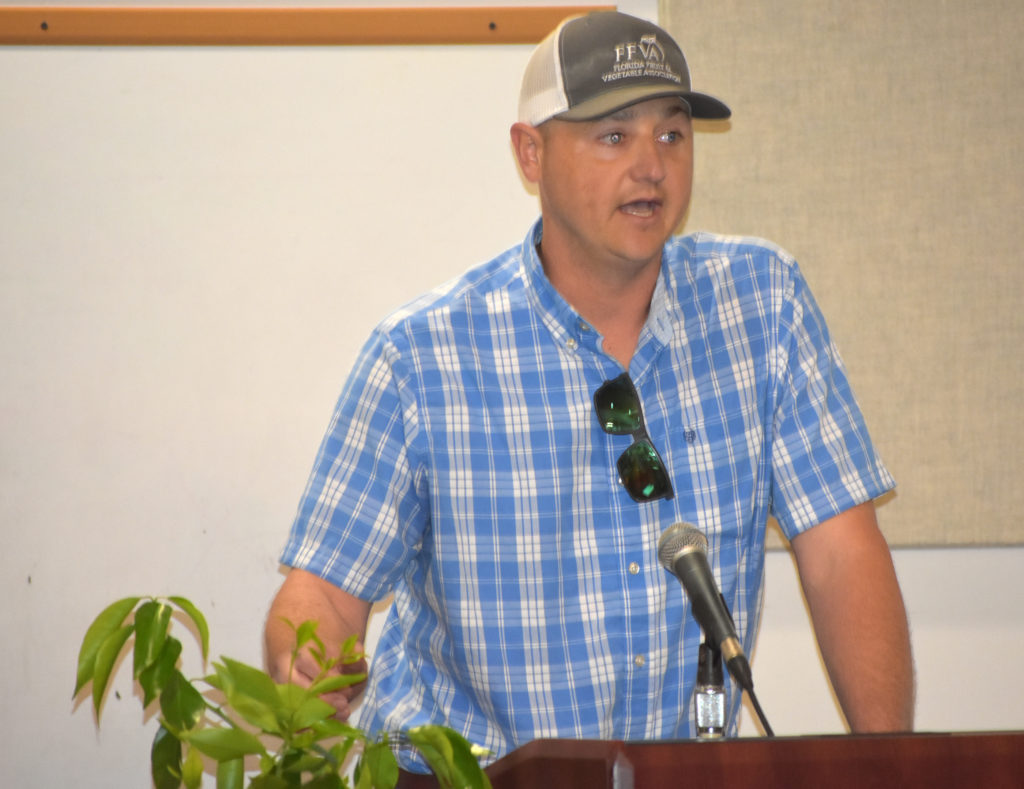By Clint Thompson
Farming is more than just a specialty crop producer’s occupation; it’s a way of life. That is why growers become emotional when discussing their livelihood that is threatened by surging input costs, unfair trade practices and costly labor alternatives.

Michael Hill is one of those farmers that’s been challenged by the current agricultural landscape. He discussed the farming outlook during last week’s Farm Bill listening session.
“When I was about 10 or 12 years old, I wanted to be a farmer and (my parents) tried to talk me out of it. I said, ‘Why should I not be a farmer?’ They said, ‘It’s hard work, seven days a week all year long. It’s stressful.’ None of that scared me,” Hill said to members of the House Committee on Agriculture. “Now my kids are asking the same questions. They want to be in the business. It’s not a question of what’s hard. I’m telling them there’s no future, because it’s the truth. I’m getting emotional about it, because it’s emotional.”
He pleaded for financial assistance in the looming Farm Bill legislation to help adopt more technological advancements. It would help reduce the need for H-2A labor.
“A reimbursement-based cost share program to replant our fields to technology-driven varieties where we can harvest by machine and not have to rely on labor would help us out in a big way, because to replant is $10,000 or $12,000 an acre, and that just kills your cash flow,” Hill said.
Hill’s father David Hill operates Southern Hill Farms in Clermont, Florida, which is impacted by rising imports every year with his blueberry and strawberry production. He spoke on behalf of the Florida Fruit and Vegetable Association (FFVA). The chairman of the FFVA sourced staggering statistical data from the tomato industry, which is one of the many commodities impacted by imports.
“What I want to do is show you what can happen is talk about the tomato industry. The tomato guys, pre-NAFTA (North American Free Trade Agreement), they were farming 60,000 acres of tomatoes in Florida with 300 growers. Today, it’s 25,000 acres with a total of 30 growers and only six or seven major growers. That’s what can happen,” Hill said. “In 2021, there was actually a $15 billion trade deficit in fruits and vegetables between Mexico and the U.S. If anybody would try to say it’s fair, I take exception to it.”









